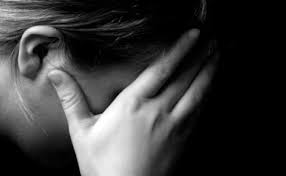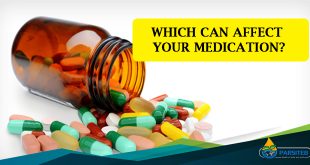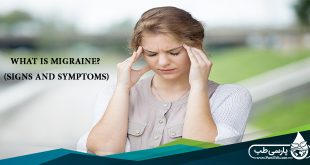Feeling down from time to time is a normal part of life, but when emotions such as hopelessness and despair take hold and just won’t go away, you may have depression. this problem makes it tough to function and enjoy life like you once did. Just getting through the day can be overwhelming. But no matter how hopeless you feel, you can get better. Learning about this disease—and the many things you can do to help yourself—is the first step to overcoming the problem.
What is depression?
Depression is a common and debilitating mood disorder that is affecting more and more people around the world. An estimated 350 million people of all ages experience symptoms of the disease and about 13 percent of Americans take antidepressants—a figure that jumps to 25 percent for women in their 40s and 50s. Depression (major depressive disorder or clinical depression) is a common but serious mood disorder. It causes severe symptoms that affect how you feel, think, and handle daily activities, such as sleeping, eating, or working. While some people describe depression as “living in a black hole” or having a feeling of impending doom, others feel lifeless, empty, and apathetic. Men in particular may even feel angry and restless. No matter how you experience it, this disease is different from normal sadness in that it engulfs your day-to-day life, interfering with your ability to work, study, eat, sleep, and have fun. When you are trapped in depression, it feels like nothing will ever change. But it’s important to remember that feelings of helplessness and hopelessness are symptoms of depression—not the reality of your situation
Am I depressed?
If you identify with several of the following signs and symptoms—especially the first two—and they just will not go away, you may be suffering from depression.
 you feel hopeless and helpless
you feel hopeless and helpless- you have lost interest in friends, activities, and things you used to enjoy
- you feel tired all the time
- your sleep and appetite has changed
- you can’t concentrate or find that previously easy tasks are now difficult
- you can’t control your negative thoughts, no matter how much you try
- you are much more irritable, short-tempered, or aggressive than usual
- you are consuming more alcohol than normal or engaging in other reckless behavior
Signs and symptoms of depression include:
- Feelings of helplessness and hopelessness. A bleak outlook—nothing will ever get better and there is nothing you can do to improve your situation.
- Loss of interest in daily activities. You do not care anymore about former hobbies, pastimes, social activities, or sex. You have lost your ability to feel joy and pleasure.
- Appetite or weight changes. Significant weight loss or weight gain—a change of more than 5% of body weight in a month.
- Sleep changes. Either insomnia, especially waking in the early hours of the morning, or oversleeping.
- Anger or irritability. Feeling agitated, restless, or even violent. Your tolerance level is low, your temper short, and everything and everyone gets on your nerves.
- Loss of energy. Feeling fatigued, sluggish, and physically drained. Your whole body may feel heavy, and even small tasks are exhausting or take longer to complete.
- Self-loathing. Strong feelings of worthlessness or guilt. You harshly criticize yourself for perceived faults and mistakes.
- Reckless behavior. You engage in escapist behavior such as substance abuse, compulsive gambling, reckless driving, or dangerous sports.
- Concentration problems. Trouble focusing, making decisions, or remembering things.
- Unexplained aches and pains. An increase in physical complaints such as headaches, back pain, aching muscles, and stomach pain.
How the signs of disease can vary
Depression often varies according to age and gender, with symptoms differing between men and women, or young people and older adults.
- in men. Depressed men are less likely to acknowledge feelings of self-loathing and hopelessness. Instead, they tend to complain about fatigue, irritability, sleep problems, and loss of interest in work and hobbies. They are also more likely to experience symptoms such as anger, aggression, reckless behavior, and substance abuse.
- in women. Women are more likely to experience symptoms such as pronounced feelings of guilt, excessive sleeping, overeating, and weight gain. Depression in women is also impacted by hormonal factors during menstruation, pregnancy, and menopause. Up to 1 in 7 women experience depression following childbirth, a condition known as postpartum depression.
- in teens. Irritability, anger, and agitation are often the most noticeable symptoms in depressed teens—not sadness. They may also complain of headaches, stomachaches, or other physical pains.
- in older adults. Older adults tend to complain more about the physical rather than the emotional signs and symptoms of depression: things like fatigue, unexplained aches and pains, and memory problems. They may also neglect their personal appearance and stop taking critical medications for their health.
Types of depression
Depression comes in many shapes and forms. Knowing what type of depression you have can help you manage your symptoms and get the most effective treatment.
Major Depression
You may hear your doctor call this “major depressive disorder.” You might have this type if you feel depressed most of the time for most days of the week.
Some other symptoms you might have are:
- Loss of interest or pleasure in your activities
- Weight loss or gain
- Trouble getting to sleep or feeling sleepy during the day
- Feelings of being “sped up” or “slowed down”
- Being tired and without energy
- Feeling worthless or guilty
- Trouble concentrating or making decisions
- Thoughts of suicide
Your doctor might diagnose you with major depression if you have five or more of these symptoms on most days for 2 weeks or longer. At least one of the symptoms must be a depressed mood or loss of interest in activities. Talk therapy can help. You will meet with a mental health specialist who will help you find ways to manage your depression. Medications called antidepressants can also be useful. When therapy and medication aren’t working, two other options your doctor may suggest are:
- Electroconvulsive therapy (ECT)
- Repetitive transcranial magnetic stimulation (rTMS)
ECT uses electrical pulses and rTMS uses a special kind of magnet to increase certain areas of brain activity. This helps the parts of your brain that control your mood work better.
Persistent Depressive Disorder
If you have depression that lasts for 2 years or longer, it is called persistent depressive disorder. It used to be known as dysthymia.
 You may have symptoms such as:
You may have symptoms such as:
- Change in your appetite (not eating enough or overeating)
- Sleep too much or too little
- Lack of energy, or fatigue
- Low self-esteem
- Trouble concentrating or making decisions
- Feel hopeless
You may be treated with psychotherapy, medication, or a combination of the two.
Risk factors that make you more vulnerable to depression include:
- Loneliness and isolation
- Lack of social support
- Recent stressful life experiences
- Family history of depression
- Marital or relationship problems
- Financial strain
- Early childhood trauma or abuse
- Alcohol or drug abuse
- Unemployment or underemployment
- Health problems or chronic pain
11 Warning Signs of a Depression Relapse
Bipolar Disorder
Someone with bipolar disorder, which used to be called “manic depression,” has mood episodes that range from extremes of high energy with an “up” mood to low “depressive” periods.
When you are in the low phase, you will have the symptoms of major depression.
Medication can help bring your mood swings under control. Whether you are in a high or a low period, your doctor may suggest a mood stabilizer, such as lithium.
The FDA has approved three medicines to treat the depressed phase:
- Seroquel
- Latuda
- Olanzapine-fluoxetine combination
Doctors sometimes prescribe other drugs, such as lamotrigine.
Your doctor might not recommend an antidepressant for this condition, because it carries a small risk of putting you into a “high” phase. Also, there is no proof from studies that these drugs are helpful in treating depression in people with bipolar disorder.
Psychotherapy can also help support you and your family.
Seasonal Affective Disorder (SAD)
Seasonal affective disorder is a period of major depression that most often happens during the winter months, when the days grow short and you get less and less sunlight. For some people, the reduced daylight hours of winter lead to a form of depression known as seasonal affective disorder (SAD). SAD affects about 1% to 2% of the population, particularly women and young people.
If you have SAD, antidepressants can help. So can light therapy. You will need to sit in front of a special bright light box for about 15-30 minutes each day.
- SAD can make you feel like a completely different person to who you are in the summer: hopeless, sad, tense, or stressed, with no interest in friends or activities you normally love.
- SAD usually begins in fall or winter when the days become shorter and remains until the brighter days of spring.
Psychotic Depression
People with psychotic depression have the symptoms of major depression along with “psychotic” symptoms, such as:
- Hallucinations (seeing or hearing things that are not there)
- Delusions (false beliefs)
- Paranoia (wrongly believing that others are trying to harm you)
A combination of antidepressant and antipsychotic drugs can treat psychotic depression. ECT may also be an option.
Postpartum Depression
Women who have major depression in the weeks and months after childbirth may have postpartum depression. Antidepressant drugs can help.
Premenstrual Dysphoric Disorder (PMDD)
Women with PMDD have depression and other symptoms at the start of their period.
Besides feeling depressed, you may also have:
- Mood swings
- Irritability
- Anxiety
- Trouble concentrating
- Fatigue
- Change in appetite or sleep habits
- Feelings of being overwhelmed
Antidepressant medication or sometimes oral contraceptives can treat PMDD.
‘Situational’ Depression
This is not a technical term in psychiatry. But you can have a depressed mood when you are having trouble managing a stressful event in your life, such as a death in your family, a divorce, or losing your job. Your doctor may call this “stress response syndrome.”
Psychotherapy can often help you get through a period of depression that is related to a stressful situation.
Atypical Depression
This type is different than the persistent sadness of typical depression. If you have this type, a positive event can temporarily improve your mood.
Other symptoms of atypical depression include:
- Increased appetite
- Sleeping more than usual
- Feeling of heaviness in your arms and legs
- Oversensitive to criticism
Antidepressants can help. Your doctor may suggest a type called SSRI (selective serotonin reuptake inhibitor).
She may also recommend an older type of antidepressant called a MAOI (monoamine oxidase inhibitor).
Depression test
Check grade of your depression!! Are you depressed or not? Participate in this quiz:
http://psychologytoday.tests.psychtests.com/bin/transfer?req=MTF8MTMwOHwxMzQ4MjMwOHwxfDE=&refempt=
References:
www.webmd.com
www.nimh.nih.gov
www.helpguide.org
www.psychologytoday.tests.psychtests.com
 Parsi Teb Physical and Mental Health Journal
Parsi Teb Physical and Mental Health Journal 
 you feel hopeless and helpless
you feel hopeless and helpless


